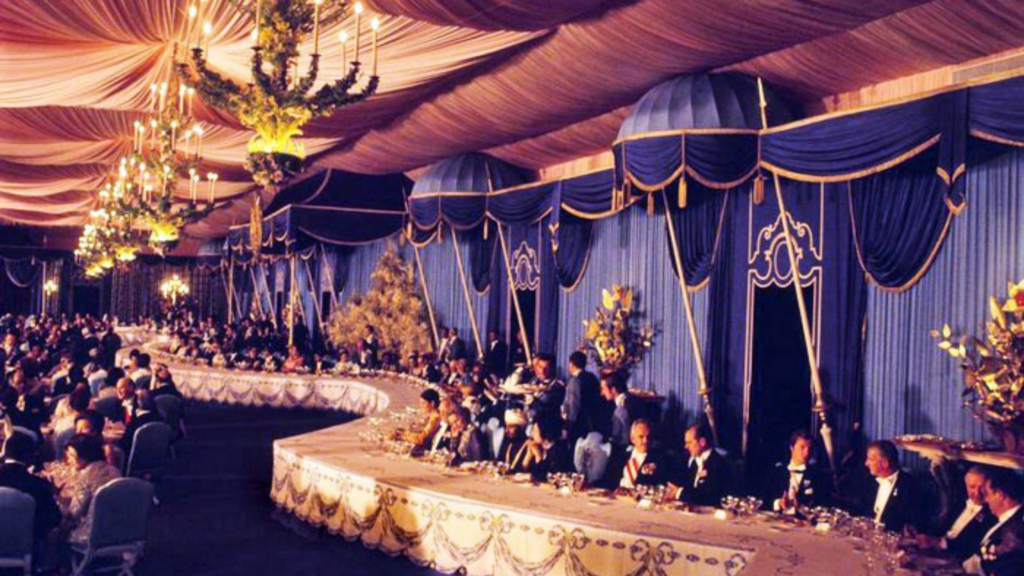Long before Burning Man and Coachella, the most exclusive, lavish and expensive party in history took place in 1971 to mark the 2,500th anniversary of the Persian Empire. Costing $635 million, it lasted for three days and featured a guestlist of emperors, kings, queens, princes, sheiks, sultans and Hollywood stars. The venue was an old dusty and dry ancient city far away from the public without any proper infrastructure where a village of luxurious tents was erected and decorated with imported trees and other greenery. The world’s most expensive restaurant catered this affair, which also was guarded by the Shah of Iran’s secret police and army troops.
Everything went flawless, but there was a serious cost to all this extravagance. A failure to celebrate with the masses fueled unrest that people were already feeling from a monarchy that was cloistered from its subjects, which seeded discontent. Religious clerics admonished and chastised the Shah Mohammad Reza Pahlavi, who ruled for nearly 40 years. That eventually led to a massive groundswell of support for Islamic fundamentalists who exploited a growing class divide, and by 1979, the shah was forced from power and died in exile.
A new HBO miniseries called Hostages examines not only how 52 American citizens were held against their will by the new regime, but also how Iran became the world’s first Islamic state and a hub of terrorism. Now, another ripple effect is being felt across fundamentalist corridors of power following the death in police custody of a young Kurdish woman who was accused of violating the country’s strict law requiring that she over her hair with a hijab. As an American of Persian descent, I can’t help but witness the pendulum swinging dramatically from aristocratic extravagance to theological madness.
